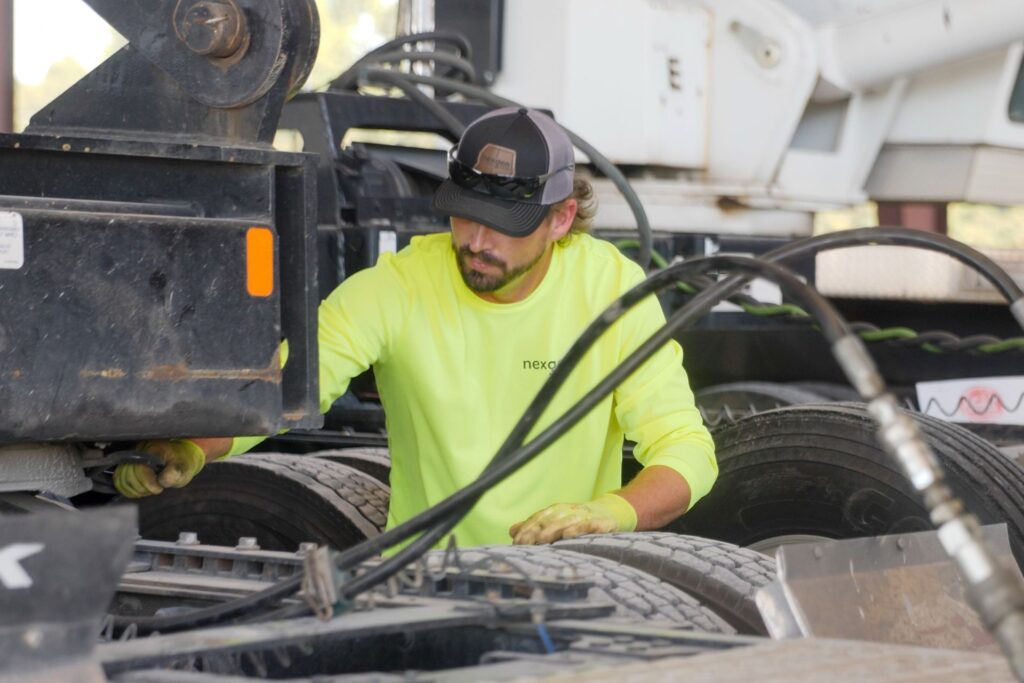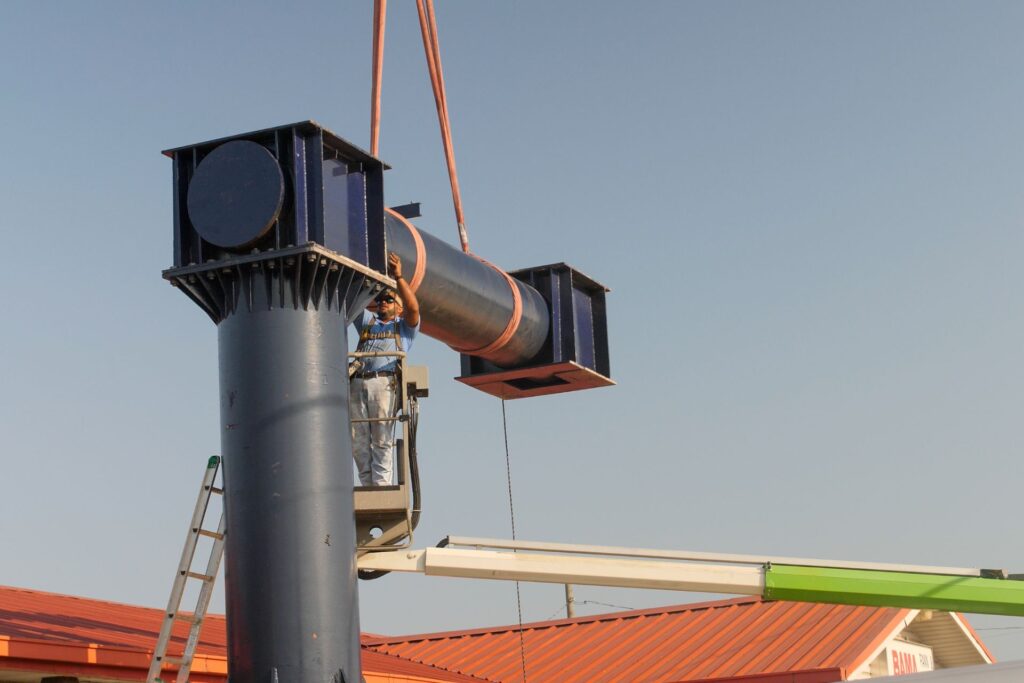Becoming a crane operator is more appealing now than ever. With opportunities for growth, competitive salaries, and a work environment that’s anything but boring — it’s a pretty rewarding field. If you’ve been curious about the role but don’t know where to start, then you’re in the right place.
Why Become a Crane Operator
With new construction developing all around the world, it’s no surprise that crane operators have a pivotal role in the process. After all, they are responsible for orchestrating the movement of materials that shape our buildings, bridges, and other infrastructure. Let’s explore the benefits of a career in crane operation.
Growing Demand
Due to continued growth in and around cities, the demand for crane operators is on the rise — and staying that way. In a field where your skills are in constant need, there’s a sense of job security that can be hard to find elsewhere.
Attractive Pay
The skill level, responsibilities, and safety considerations required for crane operators usually results in an attractive pay scale. Plus, additional career development can increase your chances of a higher salary — making for a pretty rewarding career choice.
Opportunities for Advancement
Gaining experience opens the door for advancement opportunities. This can include supervisory roles, overseeing larger-scale projects, or specializing in particular areas of operation — including tower crane operation.
While this type of advancement typically includes extra pay, it also comes with extra responsibilities. Be sure you’re willing to take on the extra load before considering a higher position.

Field supervisor, James Shackelford’s position in Mississippi, is one of our supervisory roles.
Variety of Work Environments
This is truly a line of work that’s far from boring. Whether it’s working on the construction of a new apartment building, lifting a sign for a large gas station chain, or replacing grain chutes at a feed facility — the variety never ends. Not to mention, operators are able to develop a wide range of skills and experiences on each new job.
While this type of advancement typically includes extra pay, it also comes with extra responsibilities. Be sure you’re willing to take on the extra load before considering a higher position.
Understanding Your Role as an Operator
More than just moving levers and pushing buttons, this field requires immense responsibility, skill, and adherence to safety.
While this type of advancement typically includes extra pay, it also comes with extra responsibilities. Be sure you’re willing to take on the extra load before considering a higher position.
Daily Responsibilities
An operator’s daily job consists of many tasks and responsibilities. Before a job begins, checks must be conducted to ensure the crane is safe to operate. If everything looks good, operators are then responsible for maneuvering the crane during a lift. Simultaneously, they are communicating with team members on the ground to ensure all operations are safe and running smoothly.
Safety is Critical
When it comes to crane operation, safety is everything. Given the weight of loads and heights they are lifted, the potential for accidents is significant. It is vital for operators to possess a deep understanding of load dynamics, crane capacity, and the environment around the lift to prevent things from taking a wrong turn.

Given the weight of loads and heights they are lifted, the potential for accidents is significant.
Requirements to Become a Crane Operator
Now that you know what the job consists of, let’s look at some requirements to become an operator. The path to becoming a crane operator involves a blend of education, hands-on training, and certification.
Education
A career in crane operation typically requires a high school diploma or GED. Beyond high school education, many operators pursue trade certifications or complete courses in heavy equipment operation. These programs are a great introduction to the construction world and basic operation principles.
Training
An operator’s craft really develops through hands-on training. Training programs are essential to gain practical experience with cranes and for learning equipment maintenance, safety practices, and operational techniques.
Certification
If you wish to become a crane operator, this is one of the most important steps. The National Commission for the Certification of Crane Operators (NCCCO) is a widely recognized organization that offers certifications for crane operators in the United States.
Completing this process can include steps like participating in classroom training and passing practical skills tests and written exams. When the time comes to look for a job, having this certification will immediately place you above other candidates. Pro tip: Be sure to check that all eligibility requirements are met before starting the certification.
Some states or employers may require an additional license or certification specific to your region or type of crane operation. It’s important to research specific requirements in your area for the position you desire.
Breaking Into the Industry
Like any profession, getting your foot in the door requires strategy and perseverance. Here’s some tips that could get you ahead of other candidates.
Seek Out Apprenticeships
Apprenticeships are a great way to gain hands-on experience while simultaneously earning an income. Programs like these combine classroom instruction with on-the-job training, providing a structured learning experience.
If you’re interested, reach out to any local unions, construction companies, or trade schools that offer crane operation programs. Having an eagerness to learn and being proactive can set you apart from other candidates!
Leverage Networking
The goal of networking is to make new connections, and it can play a pivotal role in opening the door if you’re looking to become a crane operator. It’s good practice to attend industry networking events, workshops, or seminars when possible. You never know when you might meet a seasoned operator or potential employer. There’s even a chance you’ll learn about a job opening that just wasn’t widely advertised.
Create a Compelling Resume
A resume is typically a first introduction to employers, so it’s important to make it compelling. A good start is to highlight any relevant training, experience, or certifications you have — even if they were from roles outside of crane operation. Just remember that tailoring your resume to highlight skills and experiences pertaining to the roles of a crane operator is key.
Become a Crane Operator with NexGen Crane and Rigging
When you work with us, you have the opportunity to contribute to the very community you live in, all while gaining valuable experience in a specialized industry. We offer a wide variety of benefits including competitive compensation, company paid health insurance, paid time off, and room to grow — no matter your position.
If you’re looking for a challenging and dynamic, yet rewarding work environment — check out our careers page. We’re always looking for good people, so don’t hesitate to reach out if you’re interested.

